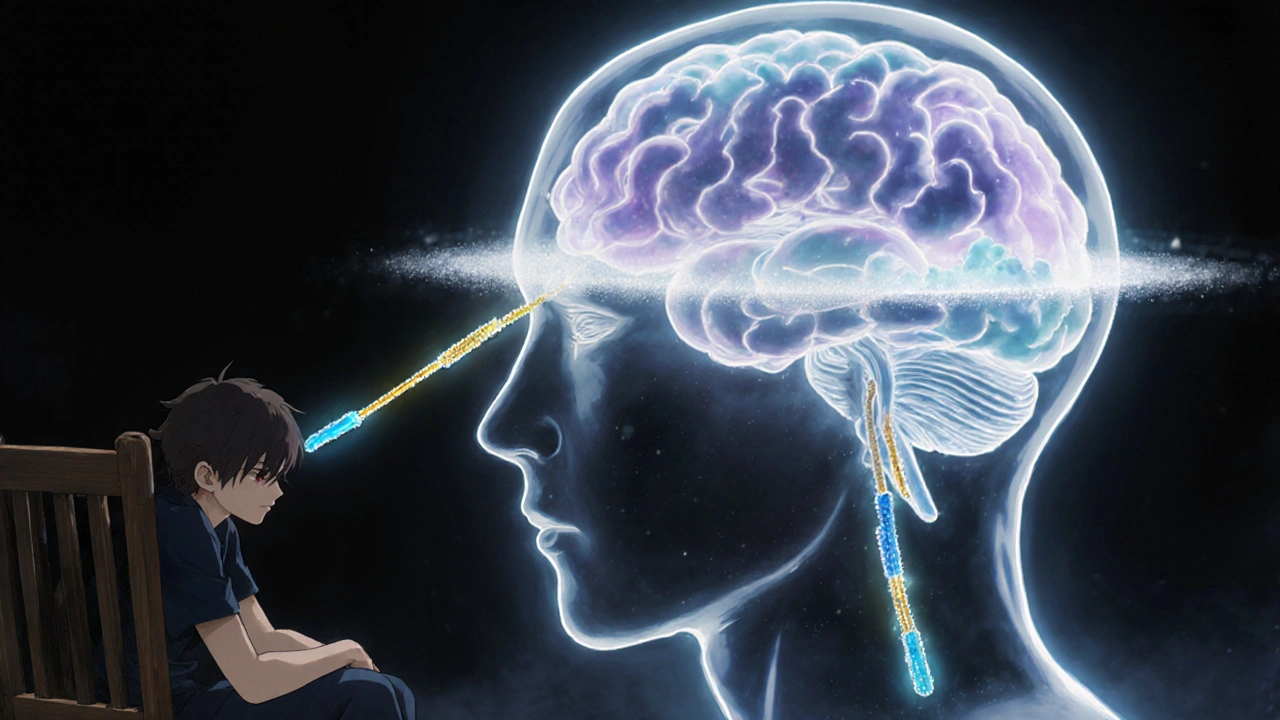Psychological Impact
When we talk about psychological impact, the way thoughts, feelings, and behavior shift in response to illness, treatment, or life stressors. Also known as mental effect, it touches everyone from patients with chronic conditions to people taking short‑term meds. The Depression, a persistent low mood that can stem from disease burden or drug side effects often shows up first, while Anxiety, excessive worry that may be triggered by health uncertainty follows close behind. Together they form a core part of the mental health ecosystem, influencing how patients stick to treatment, manage pain, and keep up with daily tasks.
How Medications Shape Mood and Cognition
Every drug carries a risk of altering the brain’s chemistry. Medication side effects, unintended reactions that can include mood swings, insomnia, or irritability act as a hidden driver of the psychological impact. For example, beta‑blockers may blunt emotional responses, while steroids can spark euphoria or aggression. The relationship can be summed up as: Medication side effects influence psychological impact. When a patient notices new anxiety after starting a blood‑pressure pill, the clinician must weigh the drug’s benefit against its mental cost. This balance is a key part of personalized care, especially in chronic diseases where long‑term drug exposure is the norm.
Chronic conditions themselves add layers to the mental picture. Diseases like diabetes, heart failure, or autoimmune disorders constantly remind patients of their vulnerability, feeding a cycle of worry and low mood. The semantic triple here is: Chronic disease amplifies depression and anxiety, which in turn heighten psychological impact. Recognizing this loop helps providers intervene early with counseling, lifestyle tweaks, or medication adjustments before the mental strain spirals.
Beyond individual drugs, whole therapeutic classes have signature mental footprints. Antidepressants aim to lift mood, yet they may initially increase anxiety. Opioids, while effective for pain, can cause emotional blunting or dependence, magnifying the psychological impact over time. Understanding each class’s typical side‑effect profile lets patients and doctors set realistic expectations and monitor changes proactively.
Another crucial piece is the social context. Support networks, work environment, and cultural attitudes shape how a person experiences psychological distress. A supportive family can buffer the impact of medication‑induced mood changes, while stigma may exaggerate feelings of isolation. This connection can be expressed as: Social support moderates the link between medication side effects and psychological impact. Simple steps—like involving caregivers in medication reviews—can dramatically improve outcomes.
Screening tools are the practical side of this theory. Instruments such as PHQ‑9 for depression or GAD‑7 for anxiety give clinicians quick snapshots of a patient’s mental state. When paired with a medication review, they create a feedback loop: identify symptoms, adjust treatment, reassess. This loop embodies the triple: Screening informs medication adjustments, which then reduce psychological impact. Regular check‑ins keep the mind‑body connection in balance.
For patients, knowing the signs to watch for makes a big difference. Sudden irritability, loss of interest in hobbies, or trouble sleeping after a new prescription are red flags. Documenting when these changes began, what drug was started, and any other stressors helps the healthcare team pinpoint the cause. This proactive approach turns vague concerns into actionable data, shrinking the window between symptom onset and intervention.
Finally, the future points toward integrated care models where psychiatrists, pharmacists, and primary doctors collaborate in real time. Digital health platforms already let patients log mood changes alongside medication schedules, providing a rich dataset for early detection. As more evidence piles up, the line between physical and mental health will blur, reinforcing the idea that psychological impact is not a side note but a central piece of overall wellness.
Below, you’ll find a curated set of articles that dive deeper into specific drugs, disease‑related mood shifts, and practical tips for handling the mental side of treatment. Whether you’re a patient seeking reassurance or a clinician looking for concise guidance, the collection offers clear, evidence‑based insights to help you navigate the psychological impact of health decisions.
Ethionamide’s Impact on Mental Health: How TB Treatment Affects Your Mood
Explore how ethionamide used for TB can affect mental health, learn to spot depression or anxiety early, and discover medical and psychosocial steps to keep patients stable during treatment.
READ MORE
